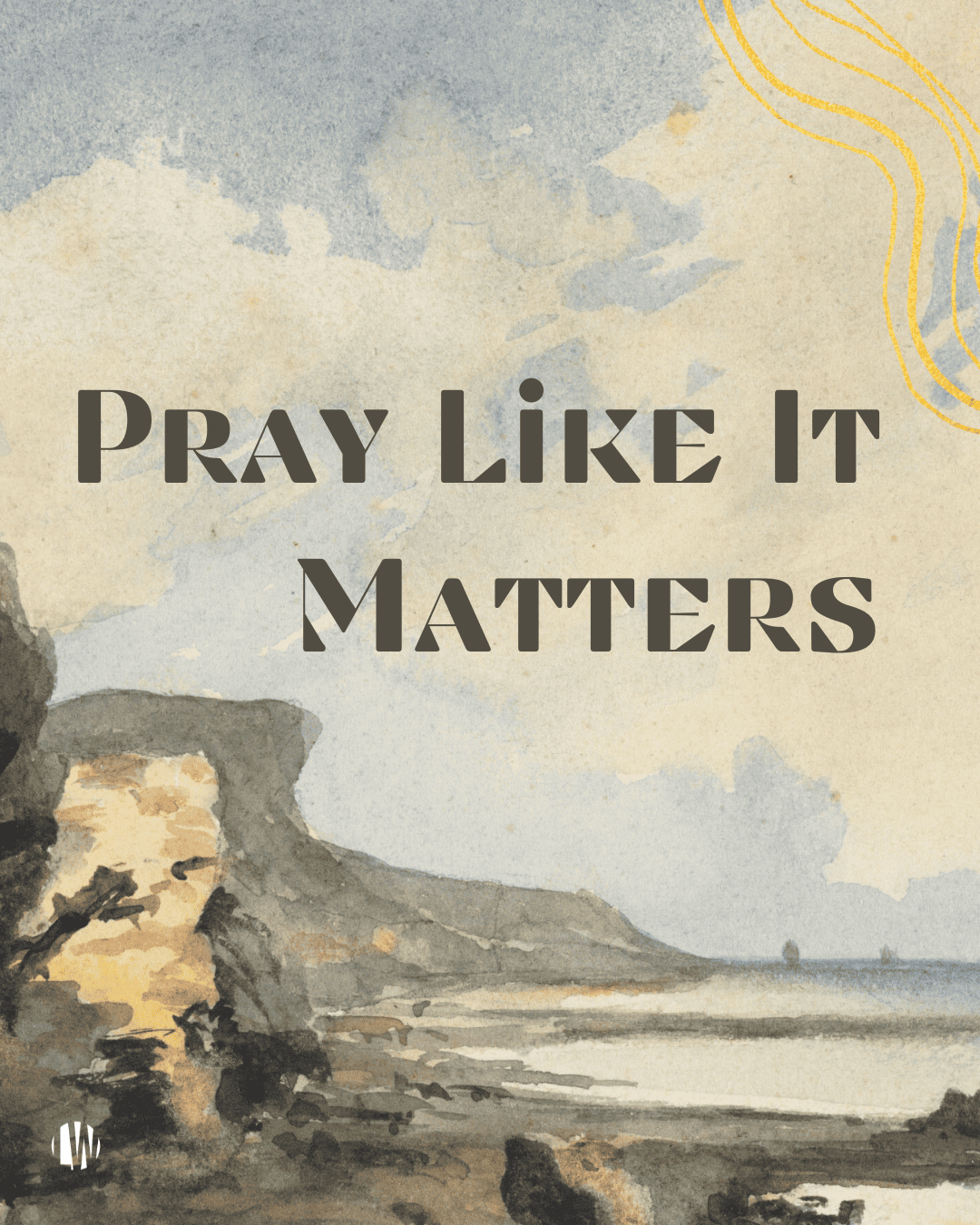The most important language in the life of a Christ-follower is prayer—how we talk to God. Yet whenever I teach about prayer and ask if anyone is completely satisfied with their prayer life, no one ever responds that they are.
There are many areas of our lives where we may feel genuine satisfaction. Why is prayer an area where we almost seem content to remain dissatisfied? Could it be that we treat prayer too lightly? Do we make it an off-limits subject, labeling it as something only for the prayer warriors?
Colossians 4:2 issues this call: “Continue steadfastly in prayer, being watchful in it with thanksgiving.” When Paul wrote this letter to the church in Colossae, he was not specifically addressing prayer warriors, missionaries, evangelists, or pastors. Paul calls everyday believers to a life of consistent prayer, and he offers three ways we can pray like it matters.
- Amount matters.
Paul says we are to continue steadfastly in prayer. This wording implies more than occasionally tossing out a few heartfelt but rushed words to God. We are to persistently work at keeping prayer a continual part of our lives. Do you work at your prayer life?
Paul instructed the Thessalonian believers to “pray without ceasing” (1 Thessalonians 5:17). He called the Romans to “rejoice in hope, be patient in tribulation, be constant in prayer” (Romans 12:12). Even Jesus taught on prayerful tenacity. In both Luke 11:5-9 and Luke 18:1-8, Jesus told stories that reflect the truth that we have a Heavenly Father who listens and responds when we ask and keep asking, knock and keep knocking.
Do these Scriptures teach we are to pray long-winded prayers, babbling on and on? Not at all. Jesus makes it clear in Matthew 6:7 that we are not to heap up empty phrases, trying to impress people. We also should not feel pressure to pray eloquent prayers. We can pray simple, honest prayers, knowing that the most effective prayers do not have to be fancy, polished, or eloquent. But they should be frequent.
- Alertness matters.
Paul moves on from saying we should be steadfast in prayer to saying we should be watchful in it.
Content with remaining a “B” student, I didn’t study much in high school. Consequently, I had to learn how to study when I began college. Thankfully, I soon discovered that the more I paid attention in class, the less I had to study. Alertness matters both in school and in prayer.
Stop and consider this. If you studied for school like you pray, would you make the honor roll or be kicked out of class? If you worked like you pray, would you be fired or promoted? I am afraid that too often we only give God the scraps of our attention. He becomes an addendum to our day as we mutter a few things at night in the warmth of our bed, only to doze off.
I certainly believe in praying anywhere, at any time, but there need to be times when prayer becomes our sole focus. Times when we remove all distractions and give God not only our spirit and our heart but also our mind.
Paul told the Corinthian believers, “What am I to do? I will pray with my spirit, but I will pray with my mind also; I will sing praise with my spirit, but I will sing with my mind also” (1 Corinthians 14:15). Amount matters. Alertness matters.
- Appreciation matters.
Paul ends Colossians 4:2 by saying we are to pray with a spirit of thankfulness. How much of our time in prayer do we spend asking versus adoring?
We all have days when gratitude feels nearly impossible. There are times we enter into prayer, and we are struggling. We are hurting. While I may not feel like I have the right to tell you to be thankful in those moments, a prisoner does. Paul reminds us, as he sits in prison writing to the Colossians, to make sure that there is the fragrance of adoration in all of our prayers, even the most difficult ones. When we begin to weave thankfulness into our prayers, strength and peace will settle into our hearts.
Ultimately, prayer does not change the mind of a sovereign God. Prayer changes you and me. The more time we come into His presence persistently in prayer, the more we find our hearts molded and formed to His will.
What might our lives look like thirty days from now if we begin praying more consistently, more alertly, and more appreciatively? Let’s pray like it matters. Because it truly does.

